African literature stands as a rich tapestry of diverse voices, cultures, and narratives, offering readers a profound glimpse into the continent’s history, struggles, and triumphs. In this article, we delve into 10 of the greatest African literary works that have left an indelible mark on literature, transcending borders and captivating readers worldwide.
1. “Things Fall Apart” by Chinua Achebe (Nigeria):
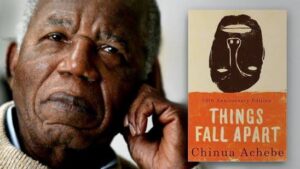
2. “Half of a Yellow Sun” by Chimamanda Ngozi Adichie (Nigeria):
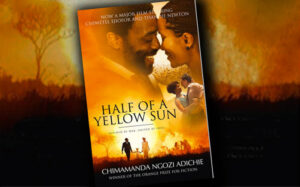 – Adichie’s evocative novel unfolds against the backdrop of the Nigerian Civil War. The narrative skillfully weaves together the lives of three characters, offering a poignant reflection on love, loss, and the complexities of war.
– Adichie’s evocative novel unfolds against the backdrop of the Nigerian Civil War. The narrative skillfully weaves together the lives of three characters, offering a poignant reflection on love, loss, and the complexities of war.
3. “Season of Migration to the North” by Tayeb Salih (Sudan):
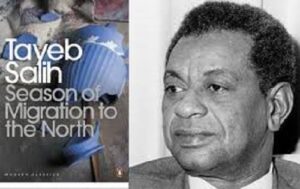 – This Sudanese classic, first published in 1966, follows the return of Mustafa Sa’eed to his native village after studying in England. The novel delves into themes of identity, colonialism, and the collision of cultures.
– This Sudanese classic, first published in 1966, follows the return of Mustafa Sa’eed to his native village after studying in England. The novel delves into themes of identity, colonialism, and the collision of cultures.
4. “Nervous Conditions” by Tsitsi Dangarembga (Zimbabwe):
 – Dangarembga’s powerful debut novel explores the struggles of a young girl, Tambu, in post-colonial Zimbabwe. It provides a compelling commentary on gender, education, and the impact of colonial legacies.
– Dangarembga’s powerful debut novel explores the struggles of a young girl, Tambu, in post-colonial Zimbabwe. It provides a compelling commentary on gender, education, and the impact of colonial legacies.
5. “Black Moses” by Alain Mabanckou (Republic of the Congo):
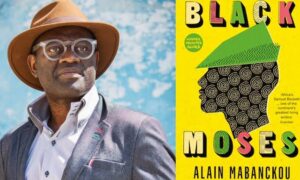 – Set in the Congo-Brazzaville of the 1970s, Mabanckou’s novel is a darkly humorous coming-of-age story. It explores themes of identity, rebellion, and the search for belonging.
– Set in the Congo-Brazzaville of the 1970s, Mabanckou’s novel is a darkly humorous coming-of-age story. It explores themes of identity, rebellion, and the search for belonging.
6. “So Long a Letter” by Mariama Bâ (Senegal):
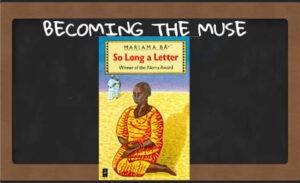 – Bâ’s groundbreaking novel, published in 1979, is a poignant reflection on the lives of women in Senegal. Through the protagonist Ramatoulaye, Bâ addresses issues of polygamy, tradition, and societal expectations.
– Bâ’s groundbreaking novel, published in 1979, is a poignant reflection on the lives of women in Senegal. Through the protagonist Ramatoulaye, Bâ addresses issues of polygamy, tradition, and societal expectations.
Also, read; Ghana Coach Chris Hughton Fired Following AFCON Exit
7. “Wizard of the Crow” by Ngũgĩ wa Thiong’o (Kenya):
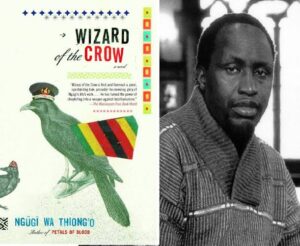 – Ngũgĩ’s epic novel is a satirical exploration of post-colonial politics in an imaginary African country. It combines magical realism with sharp social commentary, offering a thought-provoking narrative.
– Ngũgĩ’s epic novel is a satirical exploration of post-colonial politics in an imaginary African country. It combines magical realism with sharp social commentary, offering a thought-provoking narrative.
8. “Disgrace” by J.M. Coetzee (South Africa):
 – Coetzee’s Nobel Prize-winning novel delves into the complexities of post-apartheid South Africa. Through the story of David Lurie, the novel explores themes of power, redemption, and moral ambiguity.
– Coetzee’s Nobel Prize-winning novel delves into the complexities of post-apartheid South Africa. Through the story of David Lurie, the novel explores themes of power, redemption, and moral ambiguity.
9. “The Beautyful Ones Are Not Yet Born” by Ayi Kwei Armah (Ghana):
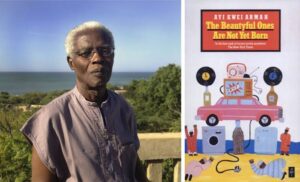 – Armah’s novel, set against the backdrop of post-independence Ghana, examines the moral and political decay in society. It remains a thought-provoking exploration of corruption and societal expectations.
– Armah’s novel, set against the backdrop of post-independence Ghana, examines the moral and political decay in society. It remains a thought-provoking exploration of corruption and societal expectations.
10. “Petals of Blood” by Ngũgĩ wa Thiong’o (Kenya):
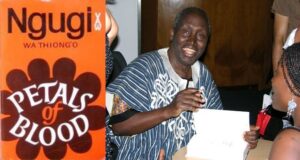 – Ngũgĩ’s second entry on this list is a powerful examination of post-colonial disillusionment in Kenya. The novel skillfully interweaves the lives of four characters, addressing issues of exploitation, identity, and resistance.
– Ngũgĩ’s second entry on this list is a powerful examination of post-colonial disillusionment in Kenya. The novel skillfully interweaves the lives of four characters, addressing issues of exploitation, identity, and resistance.
Conclusion:
African literature offers a diverse and vibrant collection of narratives that captivate readers with their depth, authenticity, and universal themes. Exploring these 10 timeless works not only provides a glimpse into the rich literary heritage of Africa but also serves as an invitation to discover the myriad voices that continue to shape the continent’s storytelling landscape.

